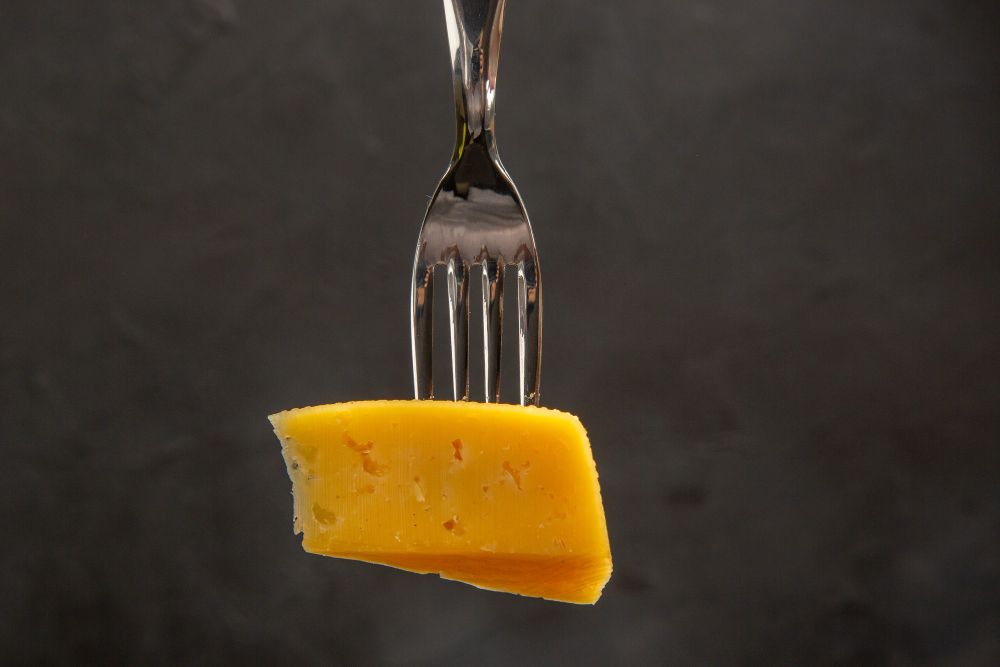How many calories in a teaspoon of butter: Complete nutrition guide
Special discount for chefs and bakers.
Enjoy 10 percent off any Bakers Choice products by using the code. CHEF10
Ever wondered how many calories are hiding in that small teaspoon of butter? The answer might surprise you — a single teaspoon packs around 34 calories, most of them from fat. Whether you’re spreading it on toast or melting it into a pan, those little servings can add up quickly if you’re not paying attention.
Is Butter Healthy for You?

Butter isn’t just a flavor booster — it’s a mix of saturated fats, vitamins, and bioactive compounds. In moderation, it can be part of a balanced diet, providing vitamin A and small amounts of vitamin D and E. However, because it’s high in saturated fat and calories, eating too much may raise LDL cholesterol and increase heart disease risk. The key is portion control and balancing it with healthier fats like olive oil or avocado.
How many calories in a teaspoon of butter?
A teaspoon of butter contains about 34 calories, almost entirely from fat. That’s roughly 4 grams of fat per teaspoon, including both saturated and unsaturated types. While small amounts can add rich flavor, those calories can add up quickly if you’re not measuring your portions.
How many calories in a teaspoon of margarine?
A teaspoon of margarine has about 33–35 calories, depending on the brand and whether it’s stick, tub, or light margarine. Like butter, most of those calories come from fat, but margarine often contains more unsaturated fats and may be fortified with vitamins. Light versions can have as few as 20 calories per teaspoon.
Where Do You Need to Exercise Caution When It Comes to Butter?
Butter can be enjoyed in small amounts, but caution is needed in a few areas:
- Portion size: Even a “small” extra pat can add 30–50 calories.
- Hidden sources: Many baked goods, sauces, and restaurant meals already contain butter you don’t see.
- Heart health: High saturated fat intake may raise LDL cholesterol, especially if your diet is already rich in animal fats.
- Daily totals: Frequent use throughout the day can quietly push your calorie and fat intake over healthy limits.
Mindful use — measuring instead of guessing — can help you enjoy the flavor without overdoing it.
Read:
How Much Butter Per Day is Healthy?
For most healthy adults, nutrition experts suggest keeping saturated fat to less than 10% of daily calories — ideally closer to 5–6% if you have heart health concerns. That works out to about 1–2 tablespoons (3–6 teaspoons) of butter per day for someone eating 2,000 calories, assuming it’s your main source of saturated fat. If you also eat cheese, fatty meats, or cream, you’ll need to cut back further. The goal is balance: enjoy butter’s flavor while making room for healthier fats like olive oil and nuts.
What is the Healthiest Butter to Eat?
The healthiest butter depends on your priorities — but generally, look for options that are minimally processed and rich in nutrients:
- Grass-fed butter: Higher in omega-3s, vitamin K2, and conjugated linoleic acid (CLA) than conventional butter.
- Unsalted butter: Lets you control sodium intake.
- Organic butter: Free from synthetic pesticides and made from milk of cows not treated with growth hormones.
- Ghee (clarified butter): Lactose-free, with a high smoke point for cooking.
If heart health is a concern, balance butter with healthier fats like olive oil or avocado, rather than making it your main fat source.
Also read:
Special discount for chefs and bakers.
Enjoy 10 percent off any Bakers Choice products by using the code. CHEF10
Is it Healthier to Make Your Own Butter?
Making your own butter can be healthier — but only if you control the ingredients. Homemade butter skips the additives, colorings, and preservatives found in some commercial brands. Using fresh, high-quality cream (especially organic or grass-fed) means you get more natural nutrients like vitamin A and omega-3s. You can also adjust the salt level to your preference or leave it out entirely.
However, nutritionally, homemade butter still contains the same amount of saturated fat and calories as store-bought, so portion control is just as important. The main health advantage lies in purity and quality, not calorie reduction.
How many calories in a teaspoon of salted butter?

A teaspoon of salted butter contains about 34–35 calories and roughly 4 grams of fat, with a small amount of sodium (about 30–40 mg) depending on the brand. The calorie and fat content are almost identical to unsalted butter — the main difference is the added salt.
FAQ
Is margarine lower in calories than butter?
Slightly — most margarines have 33–35 calories per teaspoon, but light versions can drop to 20.
Is butter bad for your heart?
In excess, butter’s saturated fat may raise LDL cholesterol. Moderation and balance with healthier fats are key.
How much butter can I eat daily?
For most adults, 1–2 tablespoons (3–6 teaspoons) per day fits within healthy saturated fat limits, if it’s your main source.
Is homemade butter healthier?
It’s purer and additive-free, but has the same calories and fat as store-bought.
Which butter is the healthiest?
Grass-fed, organic, or unsalted butter — or ghee if you want lactose-free.
Conclusion
Butter can be part of a healthy diet when enjoyed in moderation and balanced with other fats. Whether you choose grass-fed, unsalted, or homemade, the key is awareness — those small teaspoons add up quickly in calories and saturated fat. By measuring portions, choosing quality, and mixing in heart-healthy oils, you can savor butter’s rich flavor without sacrificing your health.
Special discount for chefs and bakers.
Enjoy 10 percent off any Bakers Choice products by using the code. CHEF10
Share the article
article Date
2025-08-22
